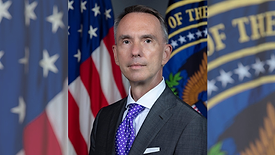Government: Federal, State and Local
State of the Ukraine conflict: Russia amps up propaganda
Check out Episode 11 of The Cybersecurity and Geopolitical Podcast
May 9, 2022
Sign-up to receive top management & result-driven techniques in the industry.
Join over 20,000+ industry leaders who receive our premium content.
SIGN UP TODAY!Copyright ©2024. All Rights Reserved BNP Media.
Design, CMS, Hosting & Web Development :: ePublishing










